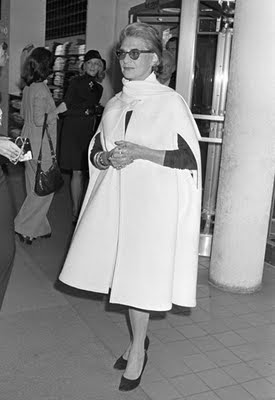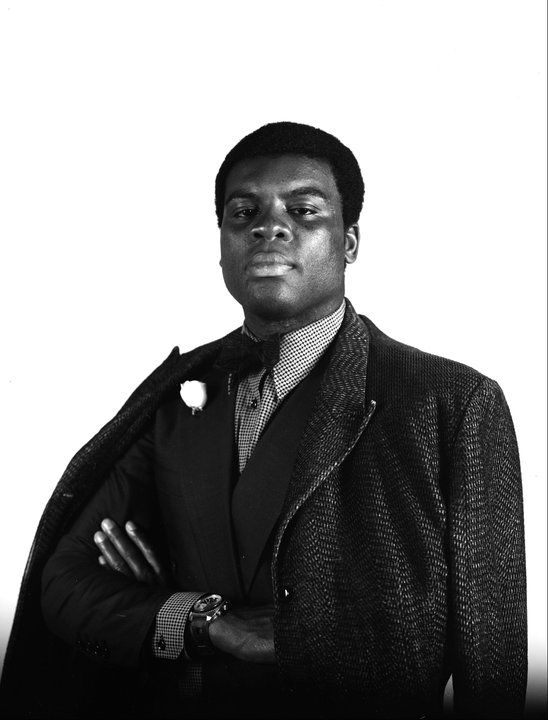I suppose it is time for me to explain why there is a reference to Tootal-and-tweed enthusiast Gustav Temple's recently released tome,
Am I A Chap?, in my tiny ego-stroking sidebar of print media appearances. This won't take long, I assure you; I'm only offering a slight distraction from what you and your right hand are really visiting the interweb for
Am I A Chap? by Gustav Temple is published by Beautiful Books. This comprehensive tome seeks to classify every species and sub-species of the English gentleman that one may observe throughout the seasons, from the flamboyant young fop to the crusty old duffer. Looking at the origins of the "Chap" genus, in figures such as Edward VII and Ian Carmichael, and their caddish counterparts such as Terry-Thomas and Bunny Roger, the book takes us up to the present day with comtemporary types such as the Bohemian Chap and the Hip Chap.
The book looks at established chaps such as Beau Brummell, Max Beerbohm, Edward VIII, and Cary Grant; deceased dandies such as the Comte de Montesquiou and Fred Astaire; contemporary chaps, such as the Gentleman Explorer, the Libertine, the Old Codger, the Country Squire, the Bohemian Chap, the City Gent. It takes a look at the finer details of clothing, from the Cravat to the Brogue, via the Hacking jacket, the Umbrella, the Walking cane, the Fair Isle sweater, Pyjamas, the Blazer, Spats and, of course, the Panama. There are tips on where to find them, where they tend to gather, and the emporia worldwide whither Chaps progress in order to equip themselves. Laced with delicate humour and a wry wit, this is an indispensable handbook for the coat pocket of every enthusiastic chap-spotter all over the world.
Sensing the beginnings of a possible kinship, Guy Hills of Dashing Tweeds arranged for Gustav Temple and I to meet in Soho during the autumn of 2009, which, as some semi-regular readers may be aware, lead to a
two page spread in
The Chap magazine's anniversary issue that, in authentic Mode Parade fashion, passed utterly by the issue's purchasers with the sort of soft impression that is the normal preserve of a dull night for two in the bedroom. Somehow, this still more or less left me spent
Funnily enough, Gustav was not yet finished with me
Which is as good a moment as any to disclose that some days, I do wonder why. Perhaps it is because I have something in common with him that is beyond even some of his most faithful myrmidons - I'm not afraid to use a smartphone

Despite the fact that our personal modes are literally decades apart in affections and affectations, I think Gustav particularly liked my
teenage sartorial step-up manifesto - as published two years ago in
Men's Flair - and all round ostentation - the late
Sebastian Horsley being a frequent contributor - so he kept me in mind for the book, which is an engaging expansion of
The Chap's ethos and the occasionally impeccable, oft emetic efforts that appear in the magazine's
'Am I Chap?' section, the title of which, incidentally, precedes that diverting French Connection advertising campaign. I quite enjoyed it, particularly for the continued excoriations of the pseudonymous luvvies and satirists that send in their photographs, as well as the coverage of heroes such as David Niven, whose second memoir,
Bring on the Empty Horses, is a current read of mine, and
Tommy Nutter. And I have purchased my own copy, so these compliments have nothing in the way of endorsements. It's an especially adorable buy, being of a similar size to my myriad Ladybird-published children's story books; the little ones always tie a personal library together. The magazine also has one particularly sterling asset to offer at present: the writing of Robert Chilcott, whose adroit stylistics and depth of knowledge make the film reviews section an interesting and edifying experience
As I was "globetrotting" accidentally last year, Gustav chose to place my feature in the book's 'Foreign Dandies' section. I hope the PC Police do not take offence on my behalf, as I assure you, I have never lived for as much fun as I do for the moments in my day where I get to proudly defeat members of the BNP using only my UK passport as a melee weapon
Though next time, I can always use my copy of the book instead














































